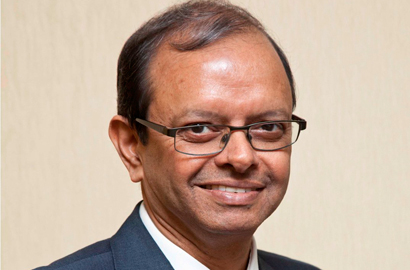Issue No.20 / December 16-31,2015

For many Indians who have been born into an era where freedom of speech is taken for granted, any adverse remark is easy meat to be pounced on, coloured by the pigments of one’s own beliefs and biases and presented to the world as a researched altruism rather than an opinion
Two seemingly unrelated comments on social media recently set off a chain of reflections that I will try and articulate here, hopefully to provoke some thoughts and responses from readers of this column.The first was a rather poignant comment by a well-known thespian of Indian cinema who felt saddened that any concern expressed by a member of the minority committee about security in the country should be immediately viewed as an act of sedition. The second was a somewhat tongue-in-cheek Facebook comment on the response to the Chennai floods.The person wondered that the “so-called intolerant RSS” were out in force helping flood victims while the award wapsi gang and the general commentators on everything that is going wrong in the country were conspicuous by their absence.
What connects the two? The very fact that we are able to sense the nuances in our own responses to situations and reflect on the appropriateness or otherwise of our responses to anything that happens around us. For many Indians who have been born into an era where freedom of speech is taken for granted, any adverse remark is easy meat to be pounced on, coloured by the pigments of one’s own beliefs and biases and presented to the world as a researched altruism rather than an opinion.Why should we not consider that there are a hundred (yes not just fifty!)shades of grey between white and black? An Aamir Khan may have over reached himself just a little when he spoke about his wife’s query if they should leave the country, but surely a thinking citizen of the country can express a view with-out being accused of all kinds of motives and if at all a rap on the knuckles is needed, can’t it be done to a person as an Indian and not a member of a specific community? Similarly, can’t we simply stand and applaud the extraordinary acts of heroism by ordinary people when they rise above their own limitations to help our countrymen in a time of crisis? Do we still need to find motives and reasons for action or the lack of it beyond the normal impulses of human nature?
Can’t we simply stand and applaud the extraordinary acts of heroism by ordinary people when they rise above their own limitations to help our countrymen in a time of crisis? Do we still need to find motives and reasons for action or the lack of it beyond the normal impulses of human nature?
Amartya Sen in his brilliant thesis on “The Argumentative Indian” sought to delve into the predilections of our country and many of its 125-million inhabitants to develop strong opinions and stick to them irrespective of evidence that may be presented to the contrary.To my mind, there may be an element of intolerance bred in all of us by some very similar backgrounds that of a middle-class insecurity and an intense competitive spirit to gain more than our fair share of what is available by stealing a march over contenders for the same resource.But does that really justify the rants that one so often sees on prime time debate on national television or even the insensitive comments,sometimes bordering on being ludicrous or even vituperative as people and personalities are attacked with no sense of balance or dignity?
In an e-mail discussion on the topic of intolerance (one of millions). I am sure that have been heating up the devices of all of us in the past fortnight and more),where the decibel level was loudest from undoubtedly well-meaning people of Indian origin who had been away from their country and changed their passports a decade or more ago, I was tempted to play my “India card” and flaunt the privileges of having grown up in rural India and spent all but one year of my career living and working in the country. What that experience has made me conscious of and which is something most Indians recognise, at least sub-consciously is that there is a strange co-existence of tolerance and intolerance in almost every part of Indian society. I have myself as a child witnessed some of the worst communal riots in the little town where I was raised and trembled with a family of six who took refuge in our house when there were ugly mobs of marauders outside baying for their blood. And a few weeks later seen the very same people working together for the common cause of building a new wall in a school compound to keep the children of all communities safe. The moral of this piece is that India operates at too many levels for anybody, within or outside the country to make sweeping generalisations. While the tolerance debates rage on, in Parliament, in conference centres, classrooms and social media, let us not jump to branding any one segment of society, political party or individual as unpatriotic or intolerant. Let us instead peer into our own souls and catch the reasons that make us jump to a certain point of view. And if our points of view are tending to the negative, let us look, not for reinforcements of that angst but positive signals that negate our doomsday hypotheses and give us a more positive view, not just of the present but also the future of our country. As Tagore said, let us work towards an India “where the mind is without fear” not just for us but for every Indian!
By Ganesh Natarajan